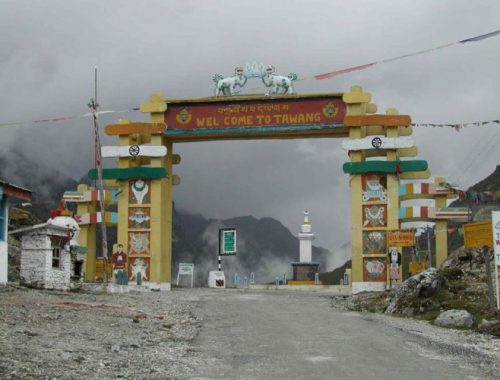New Delhi:The cabinet committee on economic affairs (CCEA) on Wednesday cleared one of the government’s largest asset-sale exercises involving five companies, including the privatization of Bharat Petroleum Corp. Ltd (BPCL) and Shipping Corp. of India (SCI).
Other companies in which the government will sell stakes include Container Corp, of India Ltd (Concor), THDC India Ltd (THDC) and North Eastern Electric Power Corp. Ltd (Neepco). As part of a consolidation exercise of the state run hydropower firms, the GoI will sell its 74.23% and 100% stake in THDC and Neepco respectively along with management control to state run India’s largest power generation company-NTPC Ltd.
In 2014, a concept paper on the possibility of a merger of all state-owned hydroelectric companies recommended a phased approach, starting with North Eastern Electric Power Corp Ltd (Neepco) to be combined with NHPC Ltd, followed by THDC India Ltd and SJVN Ltd.
Also, the government will sell its 63.75% and 30.8% stake share in Shipping Corporation of India and Container Corporation of India respectively along with management control to a strategic buyer.
In the case of BPCL, the government will sell its 53.29% stake to a strategic buyer, ceding management control, finance minister Nirmala Sitharaman told reporters after the CCEA meeting on Wednesday. The proposed sale will, however, exclude the strategic Numaligarh Refinery Ltd (NRL) in Assam, which will be later sold to another state-run firm, given India’s need to secure fuel supplies for security forces in the north-east.
“A carve-out has been made of NRL,” she said. “It will be moved out of BPCL and will be retained by a government-owned firm, before disinvestment.”
A strategic investor will get access to BPCL’s refining capacity of 37 million tonnes per annum and around 15,000 retail outlets in the world’s third largest oil consuming nation. The company reported a profit of ₹7,132 crore on sales of ₹3.37 trillion in the year ended 31 March.
As part of a consolidation of state-run hydropower companies, the government will sell its 74.23% and 100% stake in THDC and Neepco respectively to government-controlled NTPC Ltd, India’s largest power producer.
Selling these assets will be key to the government meeting its ambitious target of generating ₹1.05 trillion from asset sales in the current fiscal year. The government’s decision to slash corporate taxes to boost the economy and attract investments has left Sitharaman struggling to meet the year’s fiscal deficit target of 3.3% despite receiving a ₹1.76 trillion windfall from the Reserve Bank of India.
The CCEA also approved the sale of the government’s 63.75% and 30.8% stake in SCI and Concor respectively, along with management control, to a strategic buyer.
The aggressive asset sales plan comes amid Asia’s third-largest economy growing at the slowest pace in six years in the June quarter.
The decision on BPCL comes in the backdrop of the government also opening up the fuel retail market by lowering the entry barrier and allowing all companies with a net worth of ₹250 crore to set up outlets. The earlier rules required prior investments of ₹2,000 crore for companies to enter the fuel retail segment, which many believed, favoured state-run fuel retailers, including Indian Oil Corp. Ltd, BPCL and Hindustan Petroleum Corp. Ltd. Private sector oil companies, such as Reliance Industries Ltd, Essar Oil Ltd and Shell India, have some presence in the fuel retailing space that is dominated by the state-run firms.
In recent times, the Indian energy space has been witnessing growing interest from investors. While Adani Gas Ltd and Total SA plan to bld a gas fuel retail network of 1,500 outlets along highways, the world’s largest oil producer, Saudi Arabian Oil Co. (Saudi Aramco), is also considering entering the fuel retailing market in India. That apart, global energy majors, such as Rosneft, Kuwait Petroleum, ExxonMobil, Shell and Abu Dhabi National Oil Co. are planning to acquire the government’s stake in BPCL.
State-run Oil and Natural Gas Corp. (ONGC), which accounts for 73% of India’s oil and gas output, acquired the government’s stake in HPCL for ₹36,915 crore last year.
The government has already decided to privatize national carrier Air India and shut down state-owned trading companies in a signal that it will exit companies in non-strategic sectors.
Also, the government has decided to merge its twin state-run telecom companies—Bharat Sanchar Nigam Ltd and Mahanagar Telecom Nigam Ltd—in an effort to turn around the money-losing firms.
The strategy would also see the government look at ways to exploit the vast land assets of the two companies. In March this year, Power Finance Corp Ltd (PFC) completed the purchase of a controlling stake in state-run peer REC Ltd to create an $80-billion lending giant by assets. PFC paid ₹14,500 crore to the Union government to buy a 52.63% stake in REC.
The Cabinet also approved the food ministry’s decision to import 120,000 tonnes of onions to improve the key kitchen staple’s domestic availability.





